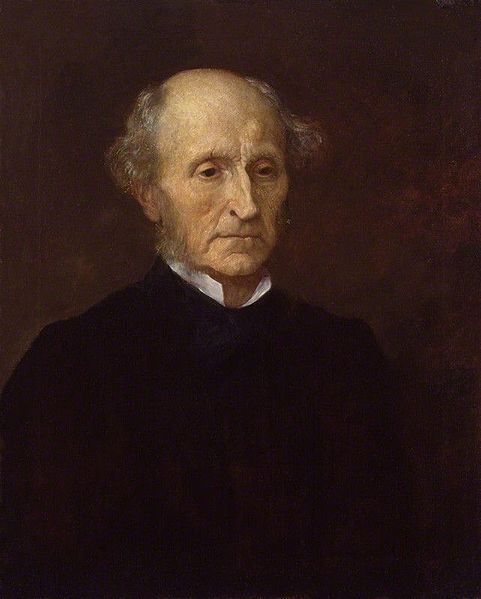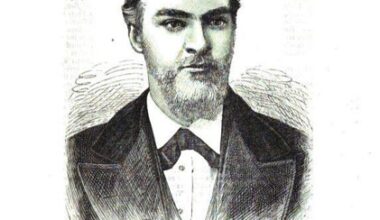This is almost certainly the first and last time the words of George Galloway will be repeated in this magazine, but freethought and free speech are surely ‘two cheeks of the same arse’. Chapman Cohen (our longest serving editor) defined freethought as ‘the rejection of authority in matters of belief’ and, more positively, Thomas Paine declared, ‘My own mind is my own church.’ The right to express ideas freely generated must entail free speech given that some ideas will doubtless offend but are hardly of much use if they cannot be expressed.
As one who regards himself as a freethinker, I claim the virtue of my philosophy is that freethinking challenges barriers to scientific and human progress by encouraging us to ignore constraints imposed by religious and political authorities whose very purpose has been to protect the privileged in society. That was why, in the nineteenth century, National Secular Society founder Charles Bradlaugh defied the religious and political establishment by insisting on his right to affirm before he took his seat in the House of Commons. And that was why the founder and first editor of this magazine, George William Foote, insisted on publishing satirical cartoons attacking religion and the religious and why he was willing to pay the penalty of 12 months imprisonment in the austere, nineteenth-century surroundings of Holloway Gaol.
In the Freethinker in January last year, I argued that freethought and secularism are inextricably linked, with freethought being the philosophical underpinning of secularism. So perhaps there are three cheeks to this particular arse—freethought, free speech, and secularism (and that’s enough of arse cheeks). Perhaps this explains why all three concepts have been seminal concerns of this magazine and the National Secular Society since their foundations in 1881 and 1866 respectively.
It has always been accepted that there must be some limits on free speech, but defining these limits is a fraught and difficult matter. It has been suggested that free speech should be reserved for matters of opinion and should certainly not extend to being hateful about inherent characteristics such as race and sexuality. This seems a good starting point and is generally extended to include language designed to encourage violence. John Stuart Mill is often invoked to argue that speech should be free unless it violates another’s rights or causes harm, or has the potential to cause harm, to another. Collectively, these seem fine principles and leave us with the scope necessary to call out religious absurdities and privileges.
So that is where I stand, or thought I stood. However, and increasingly, I am troubled. In my ‘Books From Bob’s Library’ series, I have endeavoured to describe how nineteenth-century freethinkers heroically struggled for the rights of a free press and free speech, often at grotesque cost to themselves. They struggled against repressive governments and an authoritarian Church concerned with preserving their privilege, wealth, power, and social status. However difficult it is to imagine today, the Church of England was the powerful thought police of its time. To understand Paineite radicals like Charles Bradlaugh, we should recognise that his primary motivation was to improve the lot of working people by destroying the yoke of religion. I think Bradlaugh was, first and foremost, a radical reformer whose atheism underpinned his politics. He was also the supreme optimist, believing that if you made people free, they would do good for themselves, their families, and others.
In March 2021 the Batley Grammar School case erupted. A group of Muslim extremists intimidated the school authorities into taking disciplinary action against a teacher who had been exploring the concept of blasphemy. This and other incidents have led to the suggestion that a new blasphemy code is emerging in Britain today. In the Batley case, this was encouraged by the confused and sometimes treacherous response of the school, local politicians, and the police, as detailed by the Independent Advisor on Social Cohesion and Resilience, Sara Khan, in her report of March this year. The National Secular Society has spoken out strongly and repeatedly about the Batley affair, but it seems to me that those few supporting the teacher were inclined to be found on the right of politics, sometimes the extreme right, rather than the liberal left. No longer were the champions of free speech to be found amongst underprivileged members of society; rather, some of the most underprivileged were demanding precisely the opposite.
Since then, X (once Twitter) has fallen into the hands of Elon Musk, who not only promotes his own untruths and conspiracy theories but has provided a platform for others to do the same in ever more shocking ways, all under the banner of free speech. I suspect I’m not the only freethinker to be discomforted at finding myself in the same company as authoritarian, populist narcissists whose agenda seems diametrically opposed to the liberal, democratic values I and others treasure. It is not just Musk; many aspects of electronic and social media lend themselves to such irresponsibility, chief among them their removal of traditional filters and reflective opportunities. I do not feel comfortable being associated with the lies, conspiracy theories, and authoritarianism that are now passing as the free speech cause, and I am sure I’m not alone in this.
My question is, how are liberal democratic secularists to distance themselves from conspiracy theorists, liars, populists, and racists when they have wrapped themselves in our traditional banner of free speech? What and where are the boundaries between secularists and freethinkers who value free speech and those who have quite recently adopted those noble words in the pursuit of an agenda which is anathema to freethinkers like me who cling to our belief in secular, liberal democracy? I wish I knew the answers to these questions. We have every reason to fear that these carpetbaggers are the principal danger to what we value most.
Read more perspectives on free speech from Freethinker contributors here.









Your email address will not be published. Comments are subject to our Community Guidelines. Required fields are marked *
Donate